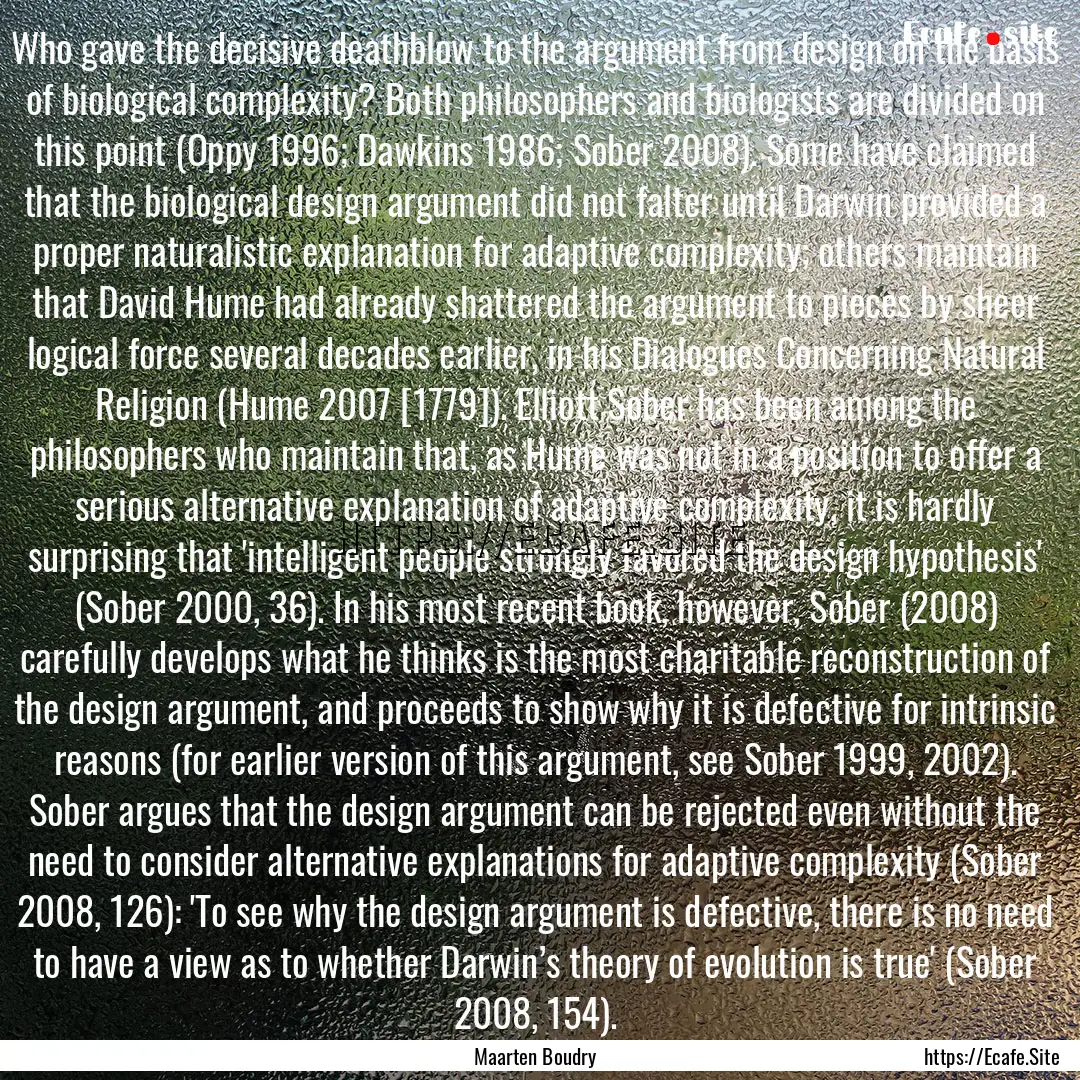
Report, if you have a problem with this page“ Who gave the decisive deathblow to the argument from design on the basis of biological complexity? Both philosophers and biologists are divided on this point (Oppy 1996; Dawkins 1986; Sober 2008). Some have claimed that the biological design argument did not falter until Darwin provided a proper naturalistic explanation for adaptive complexity; others maintain that David Hume had already shattered the argument to pieces by sheer logical force several decades earlier, in his Dialogues Concerning Natural Religion (Hume 2007 [1779]). Elliott Sober has been among the philosophers who maintain that, as Hume was not in a position to offer a serious alternative explanation of adaptive complexity, it is hardly surprising that 'intelligent people strongly favored the design hypothesis' (Sober 2000, 36). In his most recent book, however, Sober (2008) carefully develops what he thinks is the most charitable reconstruction of the design argument, and proceeds to show why it is defective for intrinsic reasons (for earlier version of this argument, see Sober 1999, 2002). Sober argues that the design argument can be rejected even without the need to consider alternative explanations for adaptive complexity (Sober 2008, 126): 'To see why the design argument is defective, there is no need to have a view as to whether Darwin’s theory of evolution is true' (Sober 2008, 154). ”




